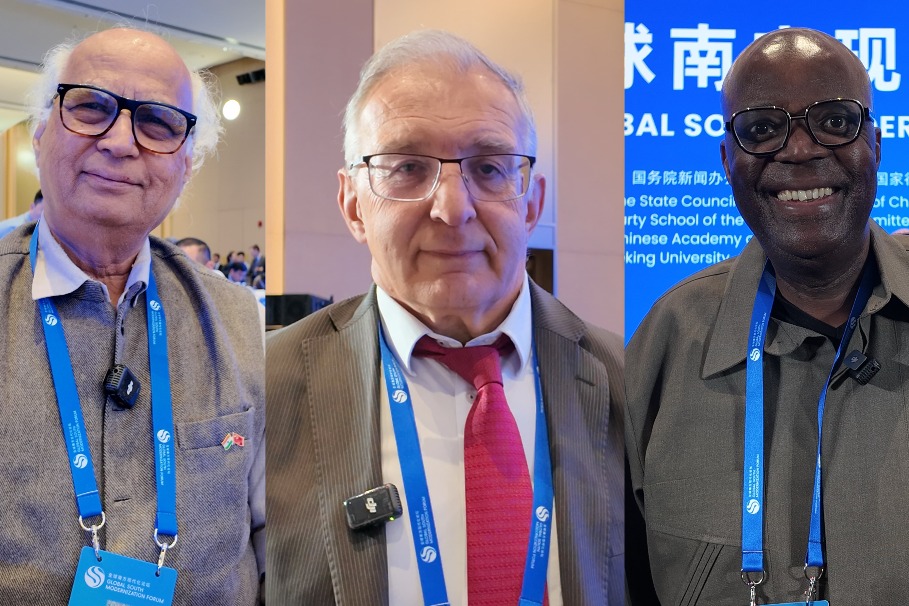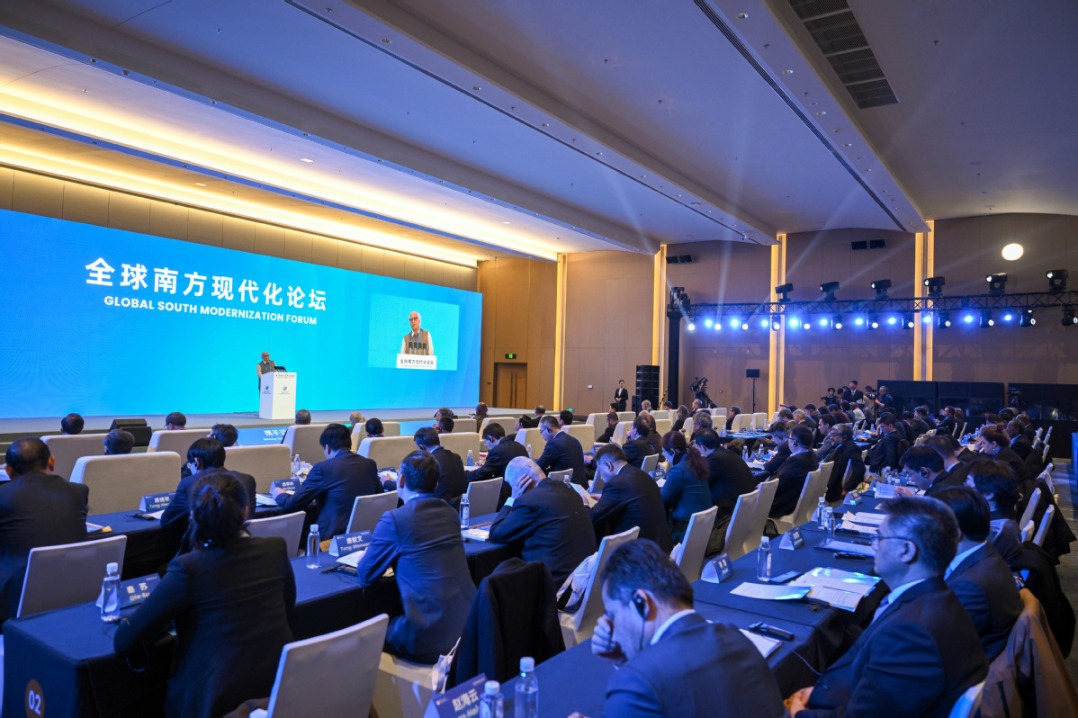Education is collateral damage of rising tensions

On Aug 26, the University of North Texas in Denton, Texas, sent a letter to 15 visiting researchers from China saying it would cancel their visa program, forcing them to leave the United States at short notice amid travel restrictions due to the novel coronavirus pandemic.
Immediately after that, a friend in China contacted me to ask if it was a rumor, because it is hard to believe US universities would make such a decision. Yet the news was not covered by mainstream US media outlets, which probably have bigger fish to fry than to be bothered by the "mere inconveniences" caused to some Chinese scholars.
The incident, however, hit the headlines in China as most Chinese know about the travel difficulties and therefore see the university's move as a cold-blooded act. The University of North Texas has not given any reason for its decision-except that the researchers are associated with the Chinese Scholars' Council. The short notice caused the scholars to scramble to terminate their rental lease, sell their cars, and buy high-priced tickets to return home, not to mention the disruption caused in their academic work.
The university probably made the decision under pressure from Texas politicians, some of whom are zealously pushing the US administration's anti-China agenda, which has been partly created by people such as Texas Senator Ted Cruz, who found a new political life in campaigning against China after his failed presidential bid. The University of North Texas became the first university in the US to expel 15 Chinese researchers without citing any valid reason.
According to an online petition started by one of the university's alumni, the fields of the scholars' work do not pose security risks to the university or the US. Having lived in Texas for about eight years, I know what the University of North Texas has done to the scholars is not part of southern hospitality.
Universities are usually seen as independent and inclusive, rather than being active participants in any anti-foreign political agenda. Harvard University and Massachusetts Institute of Technology, for instance, challenged an Executive Order banning international students from attending online classes. Kowtowing to political pressure at the cost of jeopardizing scholars' research is unbecoming of any university.
The University of North Texas claims the decision won't affect Chinese students. How convenient! Of course, the US universities still need foreign students' tuition. But why would Chinese students seek admission to a university if its administration's capricious decisions specifically target Chinese researchers?
As the US presidential campaign intensifies, more universities could take such drastic measures hurting normal Sino-US academic and cultural exchanges. The Fulbright scholarships were already suspended and other exchange programs reduced. Now individual scholars have been given the boot. Which is surprising because cultural and educational exchanges always benefit countries despite the political issues the countries have.
The Texas university's decision attracted overwhelming criticism from the Chinese public. Even intellectuals were shocked. They know the US presidential campaign partly includes the game to see which of the two candidates is tougher toward China. Yet, again and again, ordinary citizens, not the governments, have had to bear the brunt of such hostility.
The visa restrictions will hurt students seeking to study in the US. The closure of the Chinese consulate in Houston, Texas, will make it difficult for overseas Chinese to get their passports renewed and Americans to get visas. And the threatened ban of WeChat would make it difficult for people to contact family and friends.
Until a few years ago, many graduates from top Chinese universities as well as high school graduates wanted to complete their higher studies in American universities. But with Sinophobia on the rise and anti-China policies being enjoying bipartisan support in the US, more and more Chinese students are opting to study in China.
As education institutions such as the University of North Texas join the US administration in cracking down on researchers and scholars of Chinese origin, more overseas Chinese will feel they have become the target of distrust and discrimination.
This may slow the brain drain China has been experiencing for decades. But how exactly will it help the US? People fear the US might be moving toward socialism, but I think it is advancing toward McCarthyism right now.
The author is a columnist based in Texas.
The views don't necessarily reflect those of China Daily.
Today's Top News
- 15th National Games embodiment of high-quality development
- Lawmakers' thousands of proposals receive responses
- China warns Japan against interference
- Nation's euro bond sale shows investors' confidence
- No soft landing for Tokyo's hard line
- Commerce minister urges US to increase areas of cooperation






























